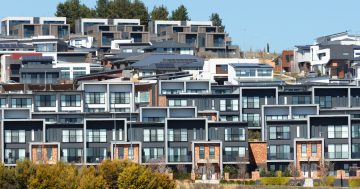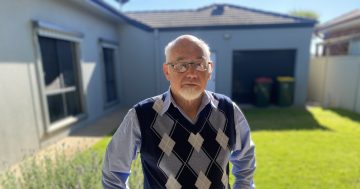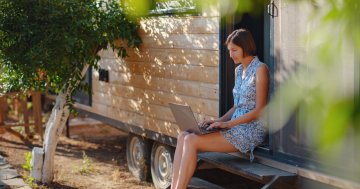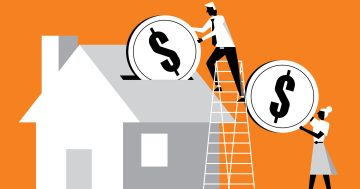Andrew Robertson* says that many are beginning to question the old adage that renting is dead money and that owning our own home is better financially.
 For most young people these days, the prospect of buying a home early in their working life is now out of the question.
For most young people these days, the prospect of buying a home early in their working life is now out of the question.
With prices, particularly in Sydney and Melbourne, among the most expensive in the world, the good old days of starting work and buying a house soon after are gone.
A long period of renting awaits.
But contrary to the popular view that renting is dead money, there are an increasing number of people who think all those frustrated buyers may be better off financially by being forced to rent.
Such as businessman Phil Ruthven.
Mr Ruthven is the founder of business information company IBISWorld and can easily afford to buy a house.
He has owned a few in his time, but for the last three decades he has chosen to rent.
“I simply did the arithmetic to work out how you might approach retirement being either an owner or a renter,” Mr Ruthven told the ABC.
And what he found with his arithmetic surprised him.
“You retire on three times the amount of money that a person who owned a home would if you rented or leased a home for most of your life,” he concluded.
Mr Ruthven said the difference between his rent payments and what a mortgage would have cost has allowed him to plough $1 million into building his business into an international company.
Is renting really ‘dead money’?
Big-four accounting firm EY (formerly Ernst & Young) undertook a detailed study of renting versus buying, and reached a similar conclusion.
“More often than not, over a 10-year period, the renter comes out financially better off,” EY Chief Economist, Jo Masters said.
What prompted EY to study renting versus buying was pressure from its large number of millennial workers, who are struggling to get the money together for their first homes.
“We really wanted to question what we found was quite a wide-held belief that renting is dead money and that the only way to get ahead is to buy a property,” Ms Masters said.
Prices are on the rise again after three interest rate cuts this year, with Sydney’s median price pushing $900,000.
That is well ahead of Canberra in second place, with Melbourne the third most expensive.
Even in the cheaper capital cities, you will still need around $500,000 if you want a place to call your own.
EY’s study focused on suburbs in Sydney that are traditionally in high demand by renters.
It found that renters could be up to $600,000 better off over a 10-year period in some of the wealthier suburbs.
Even in less salubrious surroundings, $200,000 to $300,000 was not uncommon.
“Our renter had also saved the equivalent deposit,” Ms Masters said.
“They’d also rented where they could afford to buy.”
“They invested in a leveraged share portfolio, and they also maintained quite a stringent saving plan.”
They also did their renting at a time when house prices were not skyrocketing, such as the late 1990s into the early 2000s.
The benefits of a mortgage
Not everyone is convinced though, such as long-time independent financial adviser Suzanne Haddan, the founder of Sydney-based BFG Financial.
Ms Haddan said having a mortgage forces you to save, but if you are renting, saving is optional.
“Other things come along the way, such as a trip [or a] new car — that can mean you don’t end up wealthier based on that scenario,” she said.
Then there is the leveraged share portfolio Ms Masters referred to, which generates the income for the renters to get ahead.
Margin loans are highly risky, which was demonstrated when thousands of people had their investments wiped out during the Global Financial Crisis.
And there are many who believe the current overvalued share market is heading for a big correction in the next few years.
“We acknowledge that a margin loan to buy shares may be a risk profile that many are uncomfortable with,” Ms Masters said.
Ms Haddan agreed and made the point that the house you live in is more than just a financial decision.
“Most of us feel a bit more comfortable if we have a diversified wealth structure,” she said.
“Yes, it includes some shares, maybe via our super, but that diversified wealth structure also owns a physical asset [your house].”
“You can touch it, you can feel it, and you know the carpet can’t be pulled out from under you because it’s yours.”
Casting a big shadow over the rent-versus-buy debate is retirement, where studies consistently show that renting puts a big hole in living standards.
“You could buy a home and still have heaps left over to live very comfortably if you have rented for 20 or 30 years like I did,” Mr Ruthven said.
Maybe, but Mr Ruthven is not your average renter.
Like all investment decisions though, if you are going to rent long-term instead of buying, you should seek good professional advice.
The quality of your retirement may depend on it.
* Andrew Robertson is chief reporter for the ABC’s The Business.
This article first appeared at www.abc.net.au.










